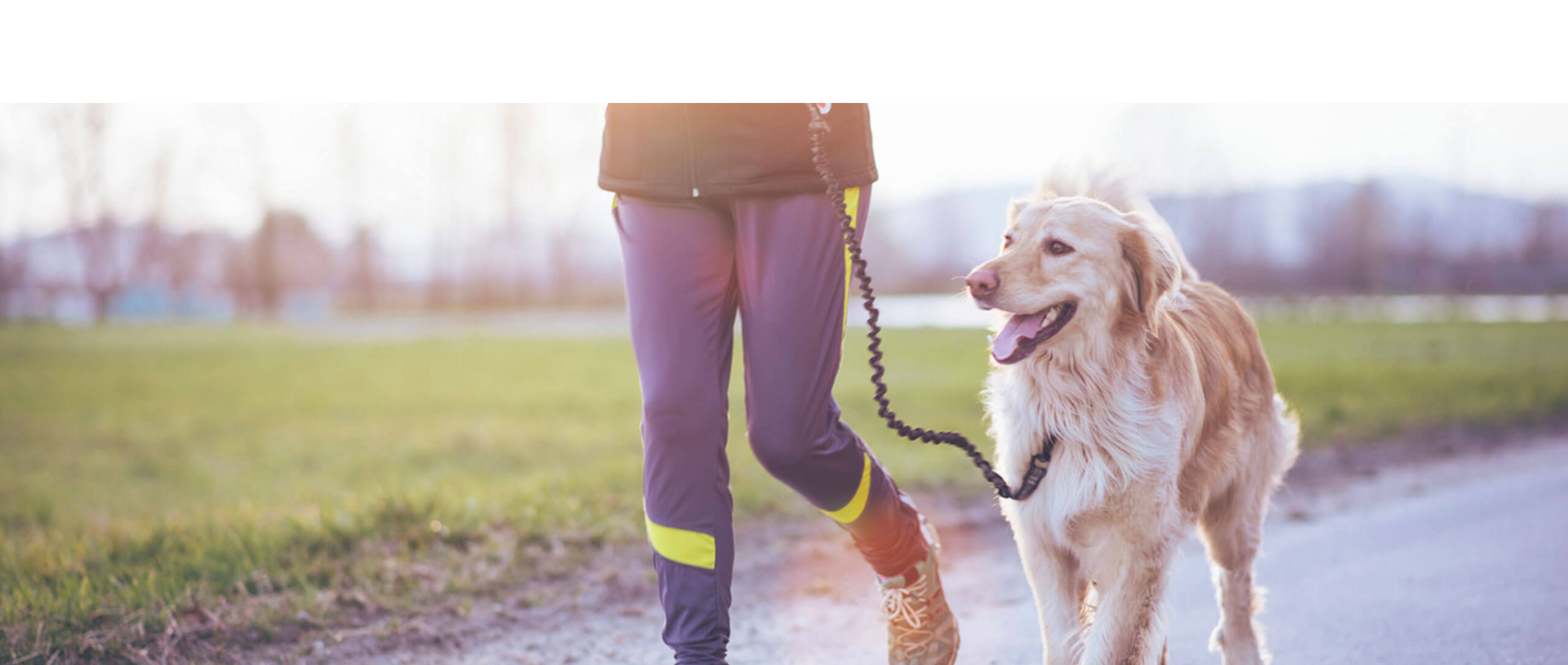Here are a few reminders to help your best buddy grow old gracefully.
Healthy diet. Exercise.
These two factors can have the biggest impact on your dog’s overall health. Early on, your dog should be engaged in some form of exercise daily, whether it’s a run in the morning, a long walk in the afternoon, a trip to the dog park or all of the above.
Exercising your dog multiple times a day is always best because regular, appropriate exercise will help your buddy’s bones and muscles develop properly, which helps lower his risk of injury later in life.
The right food also helps your dog maintain a healthy coat, good dental, brain and eye health, and keeps his bones and muscles strong to lower the chance of injury. Blue Buffalo® offers a wide range of foods formulated for seniors that are nutrient-packed to support a healthy immune system and provide proteins to help your dog’s muscles stay strong.
Warm-ups
Dogs are prone to bouts of inactivity, especially when their pet parents and human siblings are gone all day. Periods of inactivity can cause cold and contracted muscles. Younger dogs can bounce back easier from this sedentary behavior, which isn’t necessarily true for older dogs.
If you’re taking your senior canine for a hike, a run or a trip to the dog park, take him out for a gentle warm-up walk first. If he responds well and isn’t in distress, bump it up to a trot for a few minutes to prepare him for more vigorous activity. It’s extremely important your furry pal is properly acclimated to the exercise so always build up slowly to be sure he’s comfortable with the activity.
Healthy weight. Healthy joints.
Over time, active dogs can suffer from joint deterioration, which may lead to injury or chronic joint issues.
According to the American Kennel Club Canine Health Foundation, “Some dogs love their activities so much, they could be a detriment to themselves.” Too much overexertion can put undue stress on their joints and make them prone to injury. Closely monitor your older dog’s exercise to ensure he’s doing the right amount of the right activity. Your veterinarian will help you assess your senior dog’s health and advise the ideal exercise level and regimen.
Dogs who injured their joints earlier in life tend to develop arthritis as they age, so watch for joint issues and signs of injury, and contact your veterinarian right away. Treating joint problems quickly can help prevent larger issues later.
Weight plays a significant part, too. If your canine carries excess weight, it can put unnecessary stress on his joints, muscles and bones — all precursors to injury. If your best pal struggles to maintain a healthy weight, consider altering the amount or type of food he eats.
Spot signs of injury
Limping, unusual sounds or whimpers are all obvious signs that your buddy is injured. Some dogs exhibit more subtle signs of distress, like hiding silently behind trees or bushes outside, or under objects in their homes. They may even start shaking.
Duncan Lascelles, professor of surgery and pain management at the NC State University College of Veterinary Medicine, suggests that even simple things like mood changes may indicate injury or pain. “People become irritable and short-tempered when they’re in pain, and the same thing happens to pets.”
If you notice any signs of discomfort, take your dog to the veterinarian immediately to address them.
A healthy dog is a happy dog
Naturally, your veterinarian is your dog’s strongest line of defense throughout his life. Stay on top of annual checkups and schedule more frequent ones as needed when your dog ages.
Your veterinarian will always be your best resource for tips, information and expert advice to help keep your dog’s tail happily wagging for a long time.

